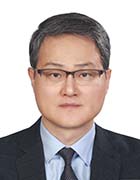
The Association of Southeast Asian Nations, ASEAN in short, was established in 1967 as five founding fathers from Indonesia, Malaysia, the Philippines, Singapore and Thailand signed the ASEAN Declaration, also known as Bangkok Declaration. Since then, Brunei Darussalam, Viet Nam, Lao PDR, Myanmar and Cambodia joined ASEAN consecutively, making a regional organisation of 10 Member States. For the last 50 years, ASEAN has cooperated steadfastly, striving to achieve regional integration and development encompassing three pillars: political-security, economic and socio-cultural communities. In 2015, the ASEAN Community was officially launched. In November 2022, the ASEAN leaders, in principle, admitted Timor-Leste to be the 11th member of ASEAN.
ASEAN has exercised so-called ‘a convening power’ in various ASEAN-led mechanisms, including ASEAN+1, ASEAN+3, ARF and EAS, to grow steadily and respond wisely to the headwinds and challenges facing the region, such as regional disputes, financial crisis, food security and disaster management. ASEAN has intensified its cooperation with 11 Dialogue Partners, including the Republic of Korea, in all three communities. It has become arguably one of the most successful regional organisations today, which the international society has ever more keenly interested in engaging with ASEAN.
The Republic of Korea established a partnership with ASEAN, a key partner in Indo-Pacific, in 1989 as a sectoral dialogue partner. Since then, Korea has worked closely with ASEAN in various areas, including but not limited to political security, economic, socio-cultural and people-to-people exchanges. In 1991, the sectoral dialogue partner was elevated to the full dialogue partner. In 1997, the inaugural ASEAN Plus Three Summit and ASEAN-Korea Summit were held. In 2004, ASEAN-Korea Comprehensive Cooperation Partnership was officiated. In 2010, the ASEAN-Korea relationship was elevated to a Strategic Partnership. In 2012, the Korean government established a dedicated Mission to ASEAN in Jakarta. Furthermore, in Korea, ASEAN-Korea Commemorative Summits were held three times in 2009, 2014 and 2019. The ASEAN-Korea relations have been consistently deepened and expanded.
Today, ASEAN is the most popular destination for Korean people, the second largest trading partner as well as the second largest investment destination. ASEAN has become an indispensable and vital diplomatic partner to Korea.
President Yoon Suk-Yeol’s administration unveiled the Strategy for a Free, Peaceful, and Prosperous Indo-Pacific Region at the 23rd ASEAN-Korea Summit in November 2022. Furthermore, the Korea-ASEAN Solidarity Initiative or KASI, ROK’s regional policy tailored to ASEAN, was also announced to pledge for its cooperation to leap forward.
KASI aims to establish the ASEAN-Korea Comprehensive Strategic Partnership in 2024 on the occasion of the 35th anniversary of the ASEAN-Korea Dialogue Partnership. This initiative manifests enhancing the strategic communication and coordination with ASEAN to maintain peace and stability in the region, continuously expanding substantial cooperation in response to regional and international challenges and aspiring for co-prosperity and development. In order to materialise the goals as such, the financial contribution will be also doubled.
The Mission of the Republic of Korea to ASEAN will closely communicate and collaborate with the Committee of Permanent Representatives to ASEAN (CPR), the ASEAN Secretariat and other key partners in Jakarta and implement the Indo-Pacific Strategy and KASI pledged by our government. As an outpost in ASEAN Diplomacy, our Mission will carry out the duties and role to deepen and strengthen the strategic and substantial cooperation with ASEAN.
Thank you.

